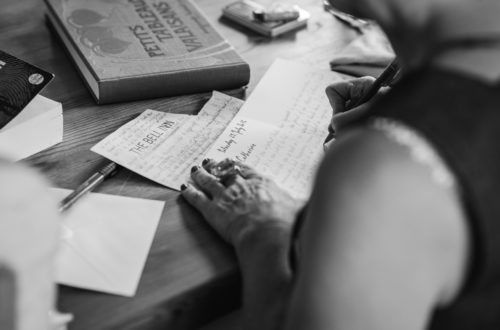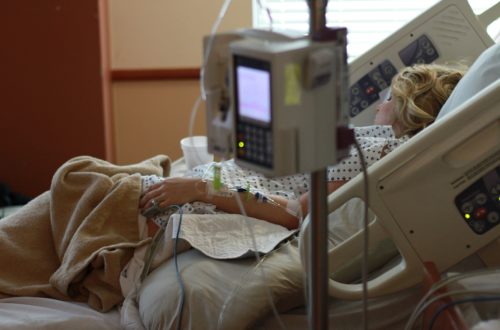By Rosanne Pagano
Dear Covid –
As if.
As if there’s anything dear about a plague.
Unless you mean “dear” as in purchased at great price, “dear” as in the un-totalable toll in hours of lives lost, days of playground laughter stolen, weeks of paychecks delayed then smithereened by seething politics.
Dear indeed.
Once when I was new to journalism, eager to succeed but too green to strategize ambition, a convicted murderer serving a couple of life sentences in a federal prison happened to call the newsroom where I worked. I didn’t know then but it seems that this particular killer called the paper regularly, always on a Saturday afternoon: “…they got the wrong man …”
An editor who took the call held her phone up and casually yelled over her shoulder in that everyday way you’d shout from the kitchen door to the garage, to tell a husband of 30 years that once again lunch is ready.
“Anybody want to talk to this guy?” From my desk in the far corner, I’d said yes a little too fast. The call was transferred. So you see, Covid, you’re not the first killer I’ve met.
Looking back on that phone call decades ago and a masked year of sanitizing, I know now that an armed man in the bushes of a Salt Lake City park is not so different from a lethal nucleocapsid of the family Coronaviridae, its protein spikes aimed at all of us.
Each of you, killer and Covid alike, selects victims whose willingness to trust — to stroll in springtime, to do a day’s essential work — makes the perfect target. Then, bang. End of story.
Covid, did I mention that all these years later I can still hear the killer’s voice, assured as a positive-sense, single-stranded genome, calm as a pandemic-shuttered office. What was said I recall only in bits. Something about bad food, solitary, an appeal. Justice.
Then as now, Covid, the chance to know a killer doesn’t happen every day. And let’s be honest, novelty is magnetic. To say you weathered a once-a-century plague (or volunteered one dull day to take a murderer’s maximum security phone call), these are facts that expose a life’s bedrock, its residuum. Everyone can see what you’re made of.
I remember growing weary fast, with the killer and with you, Covid. In journalism school we learned a contrary truth: The dullest interviews are the ones you’ll have with killers, those among us whom we believe are least like us. But the fact is, murderers are cons like any other virus, uniformly self-absorbed and incapable of answering the only question that matters: Why did you do it?
That Saturday so many years ago I eventually hung up the phone. “Anything?” the editor asked. Did I have a story or not? Of course the answer was no. “Why ask me why?” the killer had said, explaining with cut-glass certainty that he’d taken two lives because he believed that’s what he’d been put on earth to do. The End.
And if you ask me, Covid, do I have a story? Anything? my answer’s the same as 40 years ago: Death is not a story. It’s many many stories, infinite tales whose endings are lopped off illogically, blindly, suddenly. Nothing dear about that.
Signed,
Weathering in Place





